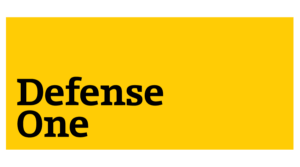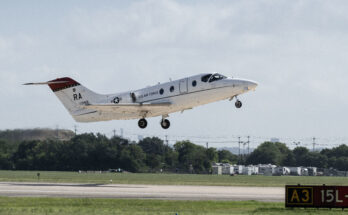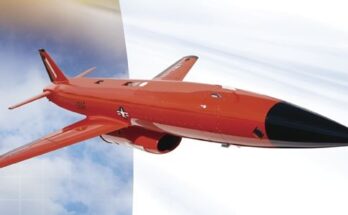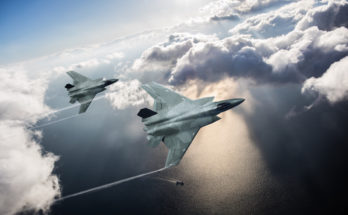BY AUDREY DECKER, Staff Writer, Defense One
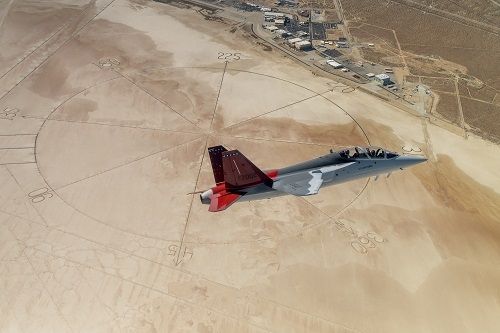
The Air Force’s new T-7A pilot training jet won’t be ready for initial operations until 2028, documents show, putting the program another year behind schedule.
Originally, the trainer was supposed to be fielded this year. But testing revealed problems with the aircraft’s ejection seat that have pushed the in-service date back multiple times. Now, initial operational capability has been delayed until the second quarter of fiscal 2028, according to budget justification documents submitted with the 2025 budget rollout on March 11.
The documents do not detail the reason behind the fresh delay. The Air Force did not have a comment on the delay in time for publication, and Boeing deferred to the Air Force for comment.
The Boeing-Saab T-7A is built to replace the Air Force’s half-century-old T-38 trainers and train new pilots for fifth-generation fighters. Lawmakers have urged the Air Force to move faster to replace the T-38, several of which have crashed over the years.
The service’s 2025 budget proposal halves the year’s planned purchase of T-7s to seven, for $235 million. That reflects budget constraints but also a testing program that is moving more slowly than hoped, Andrew Hunter told reporters after a House Armed Services seapower and projection forces hearing March 12.
“I would also say we entered the flight test program a little later than we expected, so we’ll probably start production a little later than we expected. Right now, the flight test is going relatively well. If we don’t discover something unexpected, I do think we will get into production in fiscal 2025, that’s why we’re requesting production funds in our [20]25 budget, but it will probably be a little later in the year than we anticipated,” Hunter said.
Hunter also said the official start of production—Milestone C, in acquisition argot—might not happen in February 2025 as planned.
“TBD on when we do Milestone C. It’s event-driven. We’ll have to see how the test program carries out,” he said.
Service leaders had originally hoped to begin T-7 production in December 2023. Last year, they pushed the date to February 2025.
Now, the budget documents say: “The projected finish for Developmental Test and Evaluation is May 2025, and Initial Operational Test and Evaluation is scheduled to commence in January 2026. Milestone C is currently projected for May 2025 with the first Low Rate Initial Production [LRIP] deliveries anticipated in April 2026.”
Boeing said in a statement that they expect an award in fiscal 2025 and are “working with the U.S. Air Force to establish capabilities-based criteria to determine readiness to proceed into Milestone C.”
Boeing plans to have the new T-7 production line up and running by the middle of this year “and then shortly after that, we will load the first part on the line to begin LRIP production,” the spokesperson said.
The Air Force plans to buy a total of 351 T-7 jets, including five test aircraft. Boeing has delivered three of the test T-7s, and the final two should be delivered soon, according to the spokesperson. Delivery of the final two jets has been delayed due to quality problems with parts and supply chain woes, the company said in February.
Boeing has reported $1.3 billion in losses on the training jet. The company underbid in the original competition; delays and charges have added additional pressures. The T-7 is just one of several programs that Boeing won with a strategy of lowball bids intended to lose money in early production lots but profit on later lots and decades of support contracts.
Defense One delivers news, timely analysis, and bold ideas on the topics and trends that are defining the future of U.S. defense and international security.
Founded in 2013, Defense One gives military and security professionals, stakeholders, and citizens what they need to know, from senior leaders in Washington to commanders abroad and next-generation thinkers far from the political scrum. Our journalists write breaking news of the day and in-depth stories shining a critical light across the national security landscape. Defense One publishes innovative, fearless commentary from old hands and new voices in the national-security community. We stage live events with exclusive newsmaker interviews and discussions led by our experienced journalists. And we produce award-winning podcasts and informative videos.

